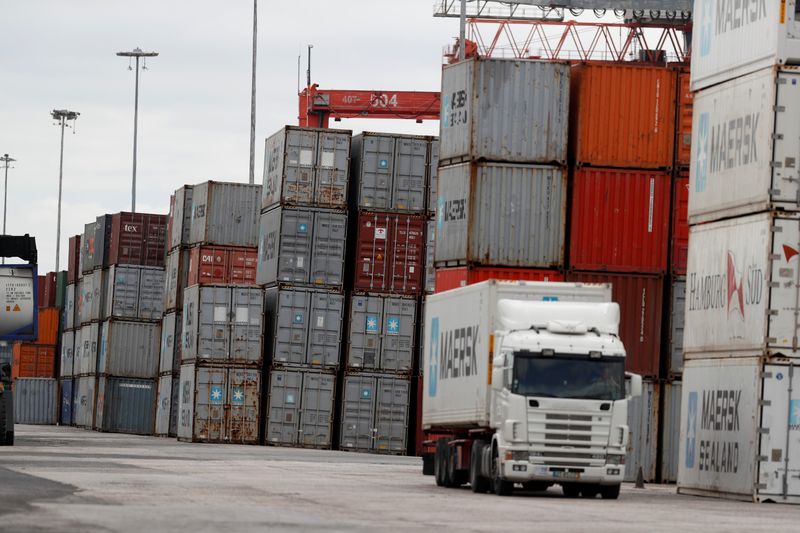Portugal’s quarterly growth accelerates, consumption defies inflation
2022.10.31 09:09
[ad_1]

© Reuters. FILE PHOTO: Containers are seen at Lisbon’s port, Portugal, June 26, 2018. REUTERS/Rafael Marchante
LISBON (Reuters) -Portugal’s economic growth accelerated to 0.4% in the third quarter from the previous quarter’s 0.1% thanks to an unexpected rise in private consumption despite high inflation, although annual expansion slowed in a potential sign of things to come.
The National Institute of Statistics (INE) said on Monday in its flash estimate that between July and September, gross domestic product expanded 4.9% from the same period a year earlier, after a revised expansion of 7.4% in the second quarter.
The contribution of domestic demand to the quarter-on-quarter rise turned positive, “highlighting the growth of private consumption despite the acceleration of consumer prices, while the contribution of net external demand was lower than in the previous quarter”, the INE said.
“These are not bad numbers and show that consumers, despite having been buffeted by inflation, still showed purchasing power and perhaps even made anticipated purchases,” said Filipe Garcia, economist at IMF-Informacao de Mercados Financeiros consultants.
Portuguese consumer prices rose 10.2% year-on-year in October, at their fastest pace since May 1992 and up from 9.3% in the previous month.
Garcia said the GDP figures included part of the summer period, “which was the best year ever for tourism in Portugal and this positively impacted activity”, and the economy likely decelerated from September onwards, although activity seems to be above the European average.
Paulo Rosa, senior economist at Banco Carregosa, expected a contraction this quarter from the third after six consecutive quarters of growth, while year-on-year, activity could stagnate or grow just 2%, but said that the government’s target for the whole year was within reach.
The government expects the economy to grow 6.5% this year, before slowing down to 1.3% in 2023, hampered by high energy and food prices across Europe and the erosion of savings accumulated during the pandemic.
Last year, GDP grew 4.9%, when it bounced back from an 8.4% pandemic-induced contraction which was the worst annual decline since 1936.
[ad_2]
Source link








